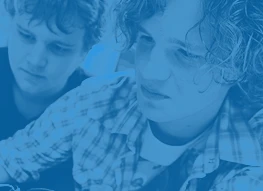One of the items presented at Transport Planning Day 2020 was some work the TPS has been leading with the Royal College of Art, supported by the CIHT and RTPI and others. The project arose for three reasons:
- the urgency to live differently given the fast approaching results of climate change;
- that current approaches haven’t achieved a change in people’s hearts and minds in the way they live their lives, nor how we plan places and engage with people and politicians
- the evident power of highlighting visually what is happening to help people understand and act on their changing behaviour – as has been achieved on the use of plastic.
The four month design research project ran between July and October. It involved working with three towns and, even in the midst of lockdown, trying to identify what we needed to do to engage people, especially their hearts and minds. We need people in the pub to understand the inter-relationship between their health, pollution, climate change, planning and transport – they don’t at the moment. When they do understand we believe they will act! We therefore need to evolve a new visual way of changing people’s hearts and minds so we were interested in the way artists and designers understand and visualise the challenges that we face.
The RCA developed a series of tools which reflected the way different people absorb and respond to information. These related to different stages that have to be part of securing real change in behaviour and attitudes – listen, learn, imagine and change. The engagement process, given Covid, was wholly through digital means e.g. Instagram, Facebook and local media, to ensure they made contact with all sectors of the community including older people and the young, and those with very different situation. This was considerably wider than consultation and the questions asked were different.
The output is a series of tools and a process which includes: feeding back community concerns raised through illustrations and cards; looking at illustrations of Utopia and Dystopia based on community comments; graphic illustrations of their behaviour on e.g. miles travelled, pollution produced and the impact of planting trees as a solution; images of places people admired; a board game linking problems and solutions to their town; interfaces for digital maps and street views that allow people to ‘drag and drop’ e.g. new routes and paths for walking and cycling and identify places and buildings that needed more than just a lick of paint through their mobile phone; augmented reality tools specially related to their community and place that they could use to explore change. A recording of the presentation given at Transport Planning Day by Lynda Addison, OBE and Dan Phillips from the Royal College of Art can be found here Transport Planning Day Video .Lynda and Dan's presentation is at 1:03:30 of the recording.
The first stage of the project is now concluded with a full report due on the work done to produce the prototype of this new way of working with people. We are now exploring how to move the project forward. This includes working further with the same three communities hopefully – Biggleswade, Haltwhistle and Lyme Regis; exploring the possibility of working with a few more places through our partners on the project; exploring further funding options so that we can test and develop the prototype and then hopefully roll it out to communities, authorities and professionals.
Please contact Lynda Addison lynda@lynda-addison.co.uk for more information.













